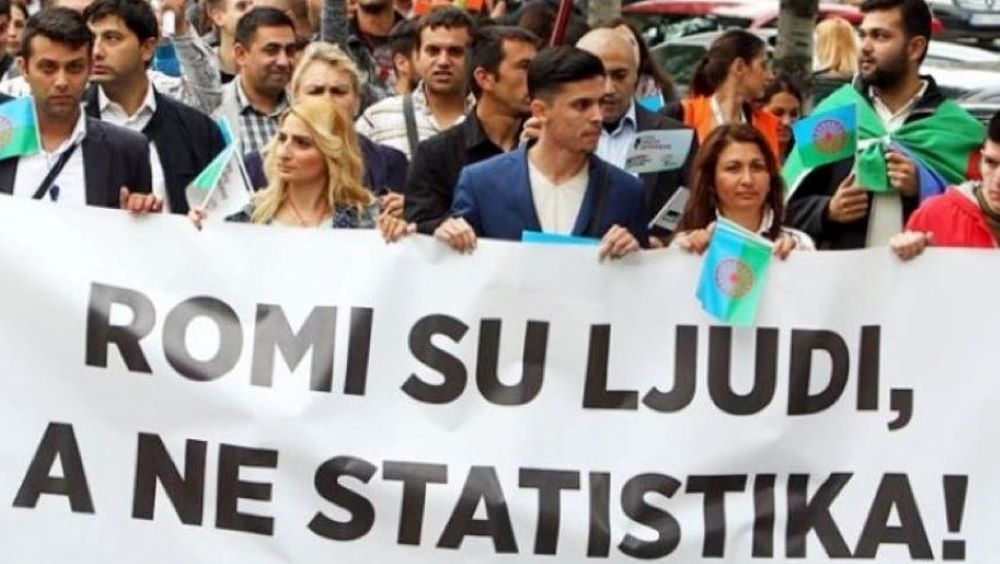This term denotes a particular form of racism directed against the Roma people, which is based on the view that this population is inferior to others, and that therefore violence against them is justified.

Elvis Berisa
There is hardly another group in the world towards which there is a sort of consensus of hatred against it, as is the case with the Roma people. This attitude towards the community has historical roots, when being Roma was punishable by death. This was the case in the 16th century in Switzerland, in Germany, in the 18th century, and at the beginning of the 20th century, when with the appearance of Nazism hatred towards the Roma, who were mass exterminated, re-emerged.
This heritage has produced a societal attitude towards the Roma people, in which hatred continues to take the lead. This hatred is called anti-Gypsyism today. The term denotes a particular form of racism directed against the Roma people, which is based on the view that this population is inferior to others, and that therefore violence against them is justified.
At the root of this notion is the perception of Roma as beings who have certain genetic predispositions that do not allow them to fully integrate into society. Therefore, the Roma are perceived as people who are not capable of respecting societal norms, who are promiscuous, over whom almost animal instincts rule, being nomadic people.
Montenegro, though constitutionally defined as a civic state, still has a problem with racism against Roma. By adopting international declarations and the EU strategy against anti-Gypsyism, the state admitted that it has a problem. Manifestations of anti-Gypsyism in our society are numerous, and they are primarily seen in the relationship of citizens towards members of the Roma people, and the vast ethnic distance of the majority towards this community. In general, all research shows the same: the greatest ethnic distance is towards the Roma people. Is this a coincidence?
Most citizens do not want Roma as their neighbors, colleagues at work, even as fellow citizens. Almost no one in our society wants a Roma as a spouse. These studies show an ingrained understanding of the Roma people as less valuable. This ultimately creates an image which can be a basis for violence against the community.
Even more dangerous is the emergence of institutional anti-Gypsyism – when the institutions that are supposed to enforce the law and protect human rights of the Roma, actually have a completely passive attitude towards everything that comes from this community. There are a lot of cases in our society when institutions do not react to the violation of the rights of the Roma population, justifying this attitude as the Roma community’s ‘way of life’.
In addition to this passivity, the Roma community is often manipulated and abused for political purposes, using their lower level of education and literacy. Poor and marginalized Roma are an easy target for ‘vote hunters’, because their vote is much ‘cheaper’ than that of other citizens. It is not uncommon, mostly in pre-election processes, for members of the community, its ‘leaders’, to be the perpetrators of manipulation, who, instead of emancipating their people, push them even deeper down into ruin. What do you call this phenomenon? Auto-antigypsyism.
Why is Montenegro still the only country in the region that has never had (and still doesn’t have) an authentic representative in the Parliament of Montenegro? Since the introduction of the institute of affirmative action in the electoral legislation, the Law on the Election of Councilors and Deputies has been amended 18 times, and the option of providing the Roma community with a lower threshold for obtaining a mandate has not been considered. If we add that one minority community has had the threshold lowered from 0.70 to 0.35 percent of valid votes – and they are, by the way, almost the same as the Roma in terms of demographic structure – then the question is whether this is something the state accidentally failed to do. What is this called? Political discrimination or anti-Gypsyism.
Although there are certain steps forward in the overall position of the Roma people in our society, the scope of social inclusion is still limited. It is constantly necessary for Roma civil society activists to ‘push’ institutions to do their job, often causing them dissatisfaction with the community.
Elvis Berisa founder of the Roma youth organisation ‘Walk with us – Phiren amenca’, author of ‘Hope is stronger than fear’, and launched the first Roma portal RomaNet. Security and Criminology graduate from the Faculty of Law, University of Montenegro



Leave A Comment